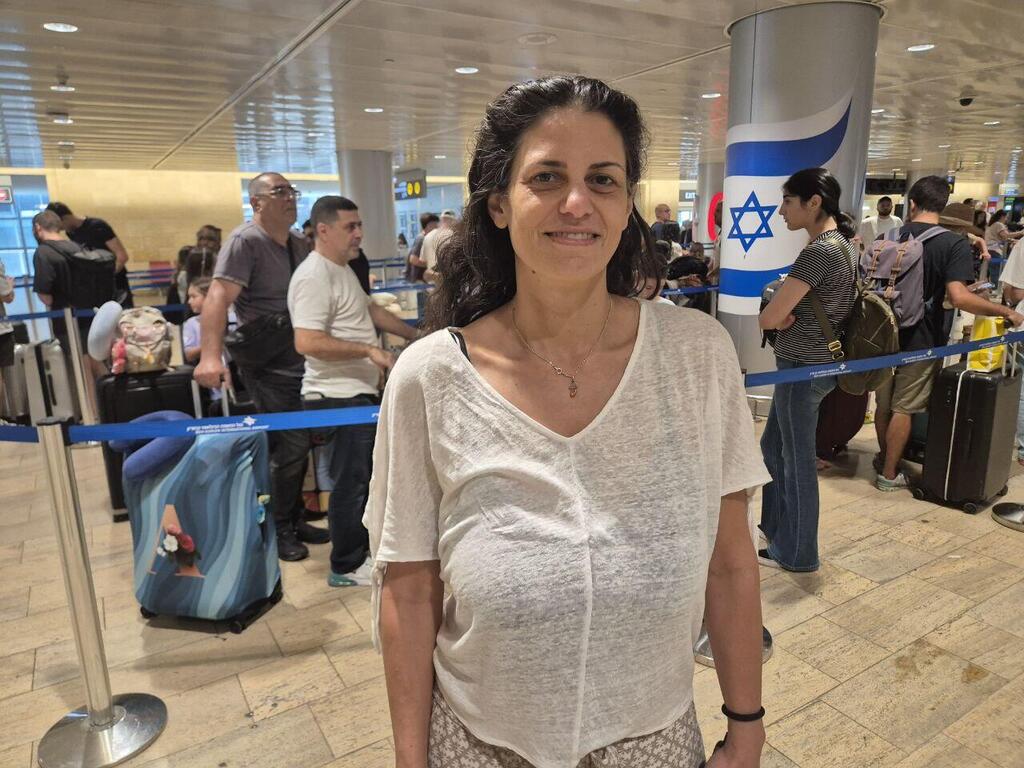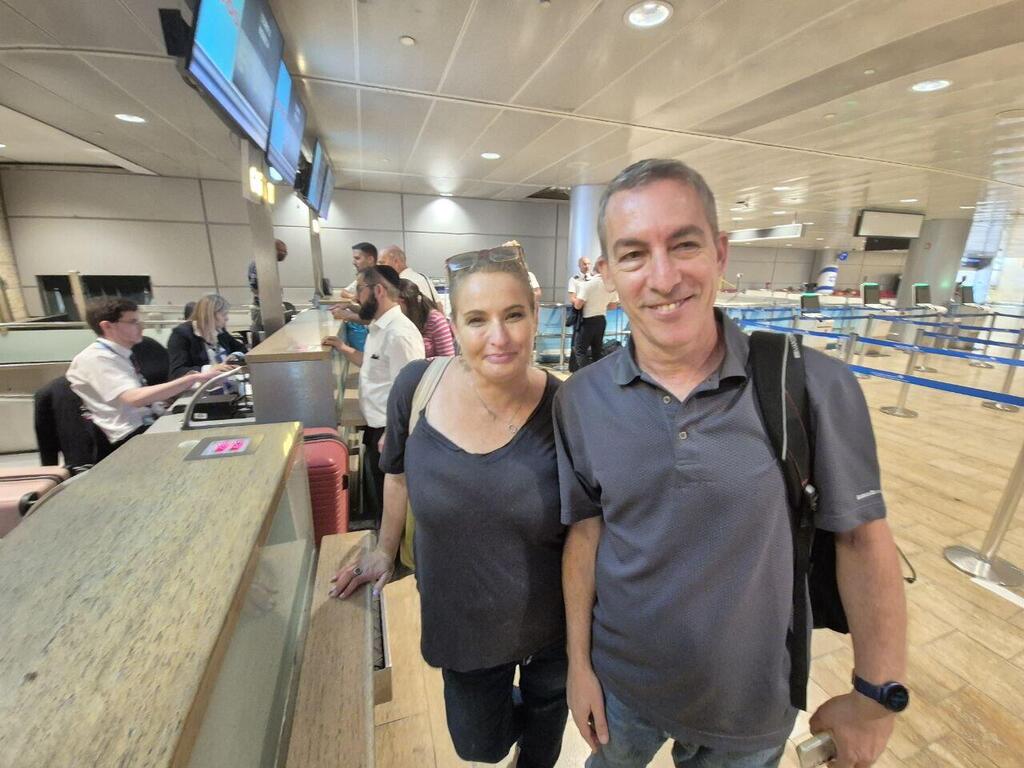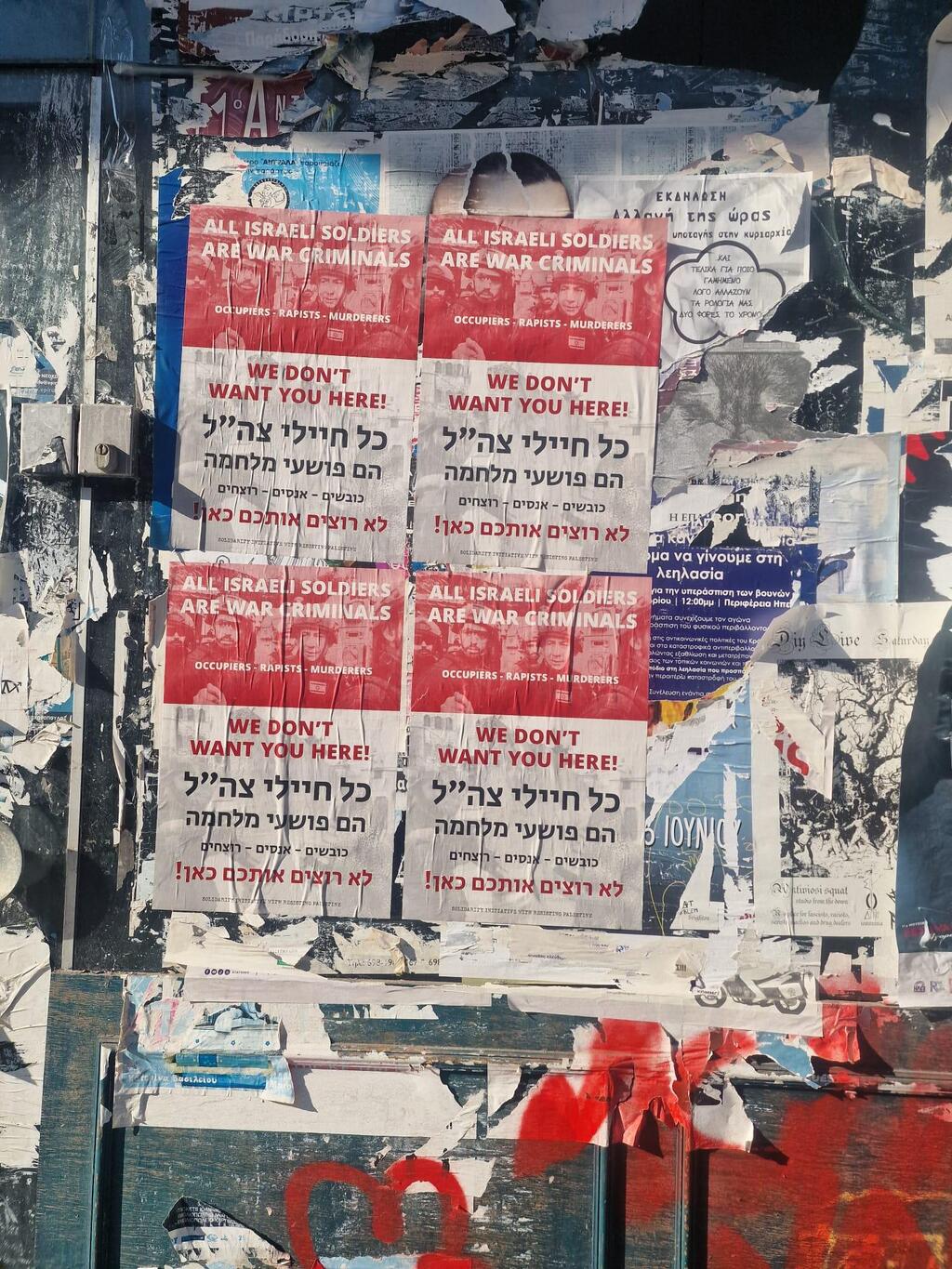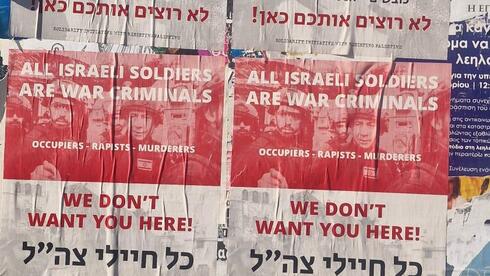Despite protests, concerns and troubling news reports, thousands of Israelis continue boarding flights and landing in the Greek isles – including Athens. Some smile with optimism; others consider posing as Hungarians or Portuguese, wary of drawing dangerous attention in tavernas. On the busiest day of the year at the airport, many Israelis face a new question: how do you navigate a place that doesn’t exactly welcome you?
3 View gallery


Mali Argaman
(Photo: Assaf Kamar)
“I’m excited and happy,” says Mali Argaman, a yoga and personal development teacher, but quickly adds: “I’m also wondering what will happen if I’m asked where I’m from. You know, this isn’t just flying to some exotic island. There’s the situation, the protests, the awkwardness. Suddenly you feel like you have to think about a new identity.”
When asked if she’s come up with a cover story, she laughs: “Maybe I’ll say I’m from Malta. Good option. But I haven’t really planned anything. If I came here with a mindset of planning fake identities for a trip, I’m not sure I’d have come. At this stage, I’m not really working through scenarios.”
In line, a young, stylish couple in love firmly refuse an interview: “We’re going to Athens, then renting a car to tour the north, including Zagoria and the Pelion Peninsula. With all the tension in the air, we don’t want to appear in a Ynet article with photos – just before landing in Greece.” The man looks uncomfortable: “We have a European look and know how to blend in with tourists from all over the world. We’re not too worried, but we don’t want to become a target. So please, no pictures.”
“My mother doesn’t know I’m going to Greece,” says Rina Shmilovitz. “My kids sent me a TikTok clip about the protests, but I ignore it. They warn me there are protests, it’s dangerous, not the time to travel to Greece. My family got a bit nervous, I didn’t. I told them: they’ll protest, I’ll keep doing my thing. Only Israelis can have fun when everything is noisy around them. We’re used to it – just keep living.”
As for an alternative identity, Rina has a plan: “I’ll go with ‘Hungarian.’ I have roots – it always works. But honestly, I don’t speak a single word of Hungarian. My grandmother did, I understood a bit as a child, but nothing comes out of my mouth. Maybe I should prepare, in case someone asks me on the street.”
Her message to Israelis debating a trip to Greece now: “Let them protest. Don’t provoke, don’t engage, don’t annoy. Just do our thing and carry on as if nothing’s happening. We’re Israelis, we keep going, no matter what’s around us.”
Her partner, Ido Groner, adds: “If there are protests, let them protest. I’m not really worried, I’m relaxed. But yes, it’s a little unsettling. You hear about protests, anti-Israel sentiment – it’s unpleasant. But we’re not here for politics, we’re here for nature, food, rest.”
3 View gallery


Ido Groner and Rina Shmilovitz
(Photo: Assaf Kamar)
In the crowded line for a Greek airline that recently resumed flights to Israel, a middle-aged couple warns not to photograph them: “Don’t even think about interviewing us. We’re not looking for trouble or politics. We came for a week of peace and good music. You didn’t take a picture, right? We don’t want to walk into tavernas with everyone knowing we’re from Israel. It would just add worry.”
Other Israelis say that because of the protests and discomfort, they prefer to stay in small, less touristy places without large concentrations of Muslim immigrants, where the atmosphere is much nicer. “We’ve been in Israel for two years straight, we need to breathe,” say friends Ivy and Omer energetically. “We’re going to Corfu, which isn’t on the protest list. We checked Ynet on Wednesday – last time they tried something like this, 30–40 people showed up. Small protest. Not a big deal. We’ve each been to Greece at least ten times. We feel at home there. Greeks like us. We just hope for quiet – no bad news while we’re there.”
Meanwhile in Greece, even before the protest wave, travelers already encountered harsh, explicit anti-Israel posters and graffiti, some even in Hebrew. “The kids saw it and didn’t want to leave the room,” said Yifat Tzaig. Dr. Ariel Zilberlicht, traveling with his family: “It’s a challenging time to be Israeli, but we didn’t get drawn into political talks.”
The Center for Monitoring and Combating Online Antisemitism issued alerts on Thursday about upcoming “days of rage” and protests against Israel in Greece. According to the Diaspora Ministry, a pro-Palestinian group is organizing events to protest the arrival of the Israeli cruise ship Crown Iris in Volos, on the Pelion Peninsula. Planned actions include a protest at the Volos promenade Thursday evening, and another on the morning of August 13 when the ship arrives.
3 View gallery


Posters awaiting Israelis in Greece
(Photo: Yifat Tzaig)
On August 10, a coordinated wave of anti-Israel protests is expected at more than 25 sites across Greece – especially on major tourist isles – as part of an international campaign called “Day of Action for Gaza.” Protests are planned in Rhodes, Kos, Crete, Samothraki, Andros, Lesbos, Tilos, Amorgos, Sifnos and others, as well as in mainland sites like Olympia, Kiato, Edessa and Preveza. Most are scheduled for afternoon and evening in prominent public spots such as ports, squares and archaeological sites.
-
Stay away from dangerous areas. If you see anti-Israel graffiti or encounter a protest, cross to the other side of the street and don’t argue with anyone, even if the situation angers you.
-
Keep your Israeli identity discreet. Don’t wear shirts with Hebrew writing. Think carefully about whether to walk in the street with a kippah or tzitzit.
-
Do not reveal your origin, religion, or identity to people you don’t know.
-
Avoid attending large gatherings that are not secured.
-
Avoid contact with strangers, except for service providers at your hotel, car rental agency, and similar places.
-
Do not post details of your trip on social media or share photos and information about your visit in real time.
-
Minimize the number of documents you travel with (for example, no workplace ID, no driver’s license if you won’t be renting a car, etc.).
-
Notify the local police immediately if you feel any threat to your safety.
